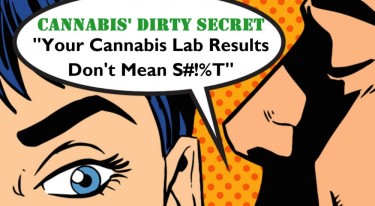
Too high or too low?
The Truth Behind THC Concentration: Are Cannabis Users Being Misled?
The cannabis industry – from its humble underground beginnings to the booming multi-billion dollar behemoth it is today. With legalization sweeping across the US and beyond, you’d think reliable product strength information would be a given, right? Well, think again. A recent article on Zmescience.com revealed a rather disturbing truth: the THC concentration is often not what it says on the label. Yes, you read that right – consumers are holding the bag with less effective products than they expected. So it’s high time (pun intended) that both manufacturers and consumers face this challenge head on and demand accurate labeling and quality control.
Let’s talk about the glaring problem of inaccurate THC labeling. A study in PLOS ONE found that, shockingly, the majority of cannabis samples had significantly lower THC levels than advertised. On average we see 23% lower and in some cases up to a whopping 35% lower. The result? Most consumers pay the maximum amount for unconvincing products. And no, this is not an isolated case – the error extends to products from a large number of pharmacies.
Now you might be wondering, “Why on earth is this happening?” Well, one possible explanation lies in the lack of a single standard testing protocol for THC levels. High performance liquid chromatography (HPLC) is the method of choice, but there is no legal incentive for testing labs to keep their noses clean. Laboratories can and do adjust methods to get higher numbers or even skew data. Then there are the growers who have dollar signs in their eyes when aiming to list products with sky-high THC levels. Eventually, consumers were tricked into believing that more THC meant better quality. Some breeders may send unrepresentative samples from their batch, resulting in inflated THC counts. Clever, isn’t it?
So how do we deal with this mess? The cannabis industry is in dire need of better regulation, standard testing protocols, and a significant shift in consumer focus away from THC content as the be-all and end-all of quality. Pharmacies could use measures such as full phytochemical profiles, internal ratings, or consumer feedback to rank their products.
It’s time consumers got smarter and learned to judge the quality of cannabis beyond THC content. Factors such as growing conditions, genetic makeup, terpene profile, drying and curing methods, storage, and time of sale all affect the overall quality of cannabis products. By bringing this knowledge to consumers, we can break the cycle of inflated THC counts and focus on what really matters: accurate information and quality products.
In short, inaccurate THC labeling is a common problem that needs to be nipped in the bud (last pun, I promise). By implementing standardized testing protocols, improving overall quality, and arming consumers with the right knowledge, the cannabis industry can ensure a more transparent and reliable marketplace for all. And don’t we all want that?
Of course, I also advocate that this type of rigorous testing should only be used for large companies. The truth is that the average cannabis user doesn’t care all that much about THC levels. They prefer a more nuanced smoke.
Hence, in the “informal marketplace” people buy simply based on “appearance, resin, smell, perceived potency”.
The retailer says, “This shit is fire” and the consumer says, “Really?” and then everyone accepts the definition of fire, which becomes the measure of potency.
However, it raises an important question.
If “high potency weed” is said to be the cause of serious mental health problems and people aren’t being exposed to the levels they believe, could the “green fallouts” be partly psychosomatic?
Who knows… it’s not like there will be any scientists researching this.
Still, I felt it was important to provide some interesting insights into the not-so-glamorous aspects of the cannabis industry.
CANNABIS THC TEST RESULTS, READ MORE…

YOUR LAB RESULTS DO NOT MEAN #$%, LAB SHOP FOR THC!

Post a comment: